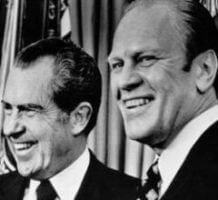National #2 Pencil Day
 Today is National #2 Pencil Day. Though this holiday’s provenance is unclear, there’s no question that this classic writing instrument has made its mark on history. (Sorry, had to do it.)
Today is National #2 Pencil Day. Though this holiday’s provenance is unclear, there’s no question that this classic writing instrument has made its mark on history. (Sorry, had to do it.)
There’s no lead in a pencil; its core is made of graphite. According to Britannica, it was initially believed to be a type of lead. We’ve used the misnomer “pencil lead” ever since. After the discovery of a large deposit in Borrowdale, England, in the 1500s, shepherds found that the black mineral was perfect for marking sheep—and humans quickly realized it worked on paper too.
In the late 1700s in France, Nicolas-Jacques Conté developed a process to mix clay with graphite to control its hardness. Over time, manufacturers around the world instituted their own grading variations, but here in the US, a simple system has prevailed. There are four basic designations, from #1 (softest and darkest) to #4 (hardest and lightest).
The #2 pencil won out because early machines like the Scantron that scored standardized tests required moderately dark, easily legible marks. (Remember filling in those multiple-choice bubbles?) The #2 had the perfect balance of darkness and smudge resistance while being soft enough to easily erase. More modern scanners didn’t have that issue, but the #2 was already established, and it has remained, well, #1 ever since.
An oft-repeated “fact” states that each standard pencil can draw a line about 35 miles long (or write roughly 45,000 words). On May 4, 2007, Keith Eldred of Hollidaysburg(!), PA, put pencil to paper to test that assertion. On June 9, he and a group of volunteers finished transcribing To Kill a Mockingbird by Harper Lee. The novel has about 90,000 words. We love a good debunking!
Per Guinness World Records, the longest pencil measured 1091.99 m (3582 ft and 7.73 in) and was achieved by BIC in Samer, France, on 10 October 2017. The pencil was made out of a graphite center encased in polystyrene, making it flexible and light so it could be easily assembled and then measured without having to hold it in a straight line and support the weight of the wood. Personally, we think this is cheating, and we’re surprised Guinness allowed it. BIC’s mechanical pencil is a cheat in itself, with its graphite snapping off so easily and its woefully inadequate eraser. But we digress.
What should you do today? Why not journal by hand, sketch and shade, write a note to a friend, jot down a grocery list, or just sharpen one and let the smell of pencil shavings take you back like a grade-school version of Proust’s madeleine.
No matter how you choose to celebrate, have a happy National #2 Pencil Day!




